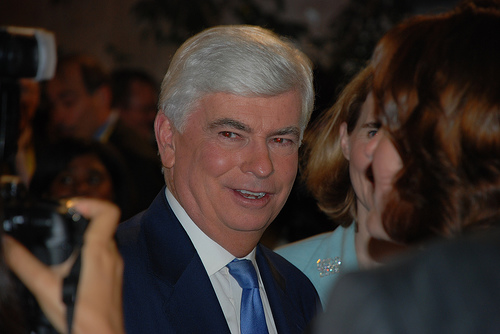The Congressional Oversight Panel (COP), the watchdog investigating the government’s bailout and other financial rescues, is set to question Vikram Pandit, the CEO of Citigroup today. Simon Johnson, former chief economist of the International Monetary Fund, says the grilling offers the COP an easy chance to ask some tough questions of the leader of one of the nation’s biggest supermarket banks. “This is an important opportunity,” Johnson writes, “because, if you want to expose the hubris, mismanagement, and executive incompetence—let’s face it—Citi is the low hanging fruit.”
To that end, Johnson offers five questions of his own, each well worth reading, that the COP should ask Pandit today:
- As far as anyone can judge, Mr. Pandit, you are completely unqualified to restructure and run a disaster prone global bank. Can you please explain in detail how you got the job? 2.
- Your hedge fund. Old Lane Partners, was closed by Citi in June 2008. Please elaborate on why it was closed, including how much money you lost on what kinds of securities. (Hint: follow the NYT through the sad story.)
- Please review for us the details of your promised compensation package and how much you have actually received – including cash, deferred compensation, stocks, and perks (including executive jet travel, valued at market rates); do not forget your chunk of the Old Lane deal. How much taxpayer money has been injected into Citi and on what basis?
- Of course, as you understand full well, the true cost to society of Citi’s misdeeds is vastly more than the direct taxpayer injections of capital. Please tell us – as specifically as you can – what other burdens Citi has generated for the rest of us. (Hint: there is a right answer here, which includes more than 8 million jobs lost since December 2007, a 30-40 percent increase in net government debt held by the private sector, and much higher taxes for everyone in the future.)
- Mr. Pandit, your proposed restructuring plans simply make no sense; there is nothing you have put on the table that would reduce the risks posed by Citi to the national interests of the United States. Even John Reed, the man who built Citi as a global brand, now says that it should be disbanded. There is no evidence – and I mean absolutely none – for economies of scale in banks over $100bn in total assets. Richard Fisher, head of the Dallas Fed, calls for immediate action in terms of breaking up large dysfunctional banks such as yours; please explain to us why the Fed should not move immediately to apply his recommendations to Citi – surely, the safety and soundness of our financial system is on the line.
















